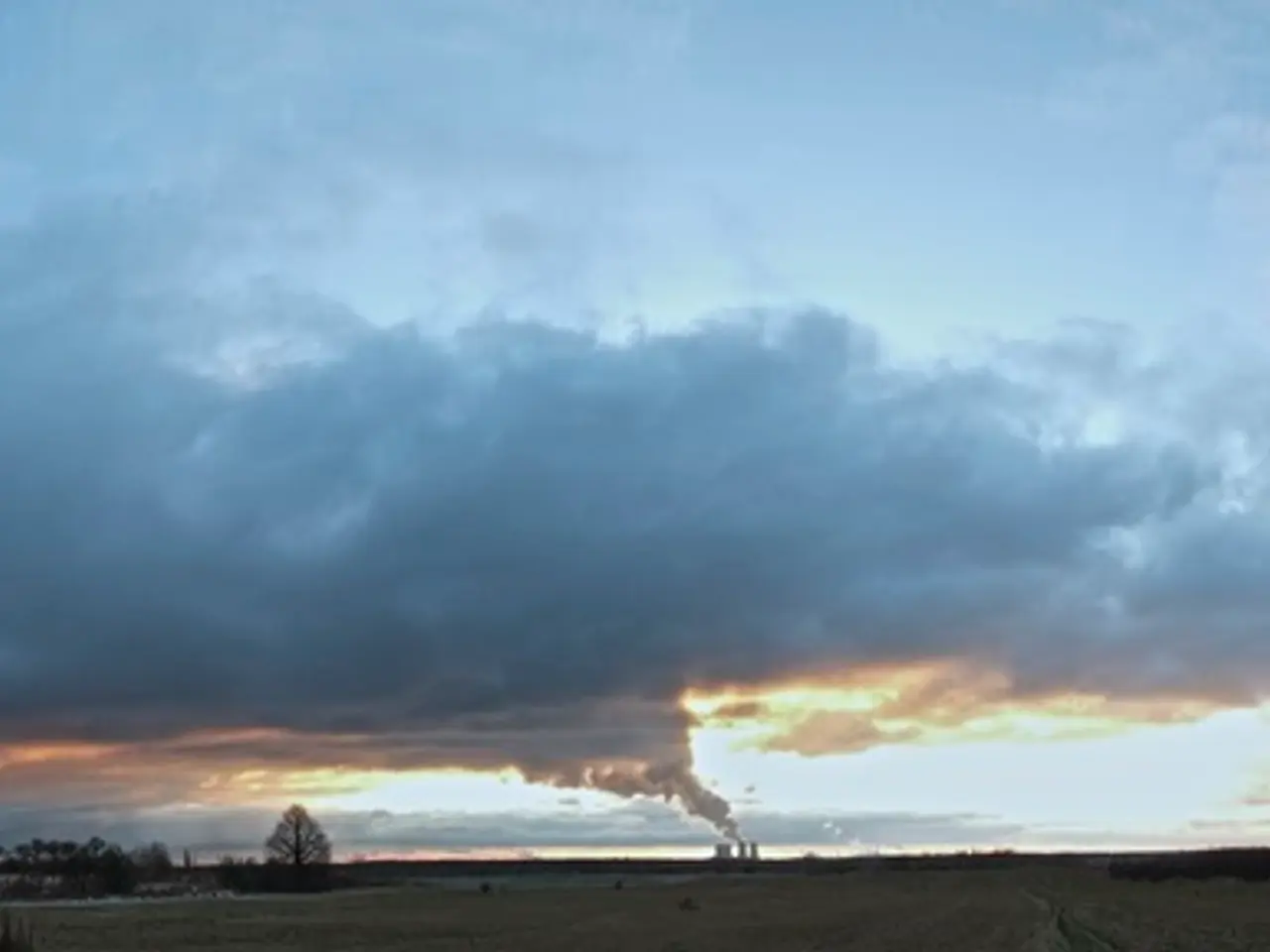Daily Impact: The Influence of Rising Temperatures and Air Pollution on Your Health Instantaneously
In a world where the changing climate continues to dominate headlines, a less visible yet equally concerning issue is the impact of air pollution on our health, particularly our lungs. The World Health Organization's International Agency for Research on Cancer has declared outdoor air pollution and particulate matter as Group 1 carcinogens, substances known to cause cancer in humans.
The tiny particles, PM2.5, smaller than one-thirtieth the width of a human hair, can bypass the usual defenses of our nose and throat, reaching deep into our respiratory system. As they travel down the windpipe, bronchi, and bronchioles, they eventually reach the alveoli, where the alveolar wall, built for gas exchange, is ill-equipped to filter poisons.
These invading particles can even slip through the alveolar capillary barrier, entering the bloodstream and traveling throughout the body. This can lead to systemic inflammation, a condition measurable in elevated C reactive protein levels.
Long-term exposure to air pollution is linked with increased risks of developing neurodegenerative illnesses, including Parkinson's disease with dementia. Moreover, the changing climate is an engine that makes the particulate impact throughout the respiratory system worse, leading to more ozone, more smoke, and more allergens.
Wildfires, fueled by hotter and drier conditions, are sending massive plumes of smoke across entire continents, spiking emergency visits in places far from the flames. The changing climate also accelerates the chemical reactions that create ground level ozone, a powerful respiratory irritant.
In the United States, there are about 16 million diagnosed cases of COPD, and the number in reality is likely a multiple of that. Similarly, there are about 20 million adult cases and 4.7 million children cases of asthma. Hospitalizations rise on bad air days, and warmer seasons lengthen pollen cycles and increase pollen counts, priming lungs for more asthma episodes and more allergy attacks.
The author discussing the effects of air pollution and climate change on the lung is Dr. Christian Grah, spokesperson of the DGP Taskforce Climate Change and Health and Senior Physician for Pneumology and Lung Cancer at Gemeinschaftskrankenhaus Havelhöhe in Berlin.
Each of us takes about twenty thousand breaths every single day, providing twenty thousand chances for the air around us to either sustain life or to quietly harm it. It's a reminder that taking steps to reduce air pollution, from supporting clean energy initiatives to reducing our own carbon footprint, can have a significant impact on our health and the health of future generations.
Read also:
- Inadequate supply of accessible housing overlooks London's disabled community
- Strange discovery in EU: Rabbits found with unusual appendages resembling tentacles on their heads
- Duration of a Travelling Blood Clot: Time Scale Explained
- Fainting versus Seizures: Overlaps, Distinctions, and Proper Responses






